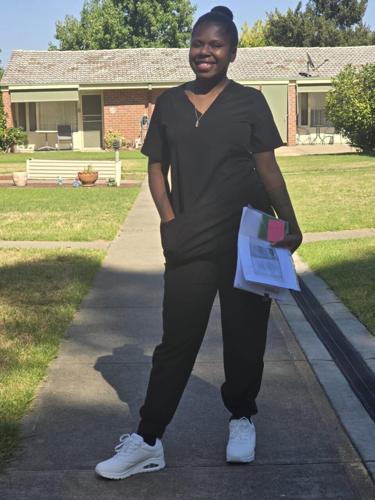
The UK Parliament is planning to host an event next month celebrating the "contribution of Muslims to British culture," and the controversial social media giant TikTok is sponsoring the event. TikTok has been accused of censoring content related to human rights abuses against Uyghur Muslims, as reported by Middle East Eye, raising concerns about its involvement.
Baroness Shaista Gohir, a non-affiliated peer and head of the Muslim Women's Network UK (MWNUK), sent out invitations for the event, scheduled for Tuesday, March 11, in the House of Lords, which Middle East Eye has seen. The invitation reads: "Baroness Gohir is delighted to invite you to the Parliamentary Launch of Muslim Heritage Month sponsored by TikTok." Muslim Heritage Month is an initiative of MWNUK, aiming to highlight the positive impact of Muslims in the UK.
Previously, the UK Parliament banned TikTok from its network in March 2023 due to security concerns. Simultaneously, TikTok has also faced accusations of providing user data to the Chinese government, allegations that TikTok denies, despite ongoing scrutiny.
Uyghur rights activist Rizwanagul NurMuhammad strongly criticized the event being held in Parliament. She stated, "As a Uyghur who has lost a brother to China’s arbitrary detention, I cannot stay silent and watch a UK Muslim initiative accept support from TikTok, a platform that actively censors our suffering, erases our voices, and now seeks legitimacy in Muslim spaces." She further added, "My brother, like millions of other Uyghur Muslims, has been taken. I am in exile with no answers, no closure, only the silence imposed by the Chinese government that controls TikTok," highlighting the devastating impact on families.
TikTok told Middle East Eye that suggestions that TikTok censors content about Uyghurs inside China or that TikTok is controlled by the Chinese government are "categorically inaccurate." TikTok added that there is a great deal of Uyghur content on TikTok. In 2020, a TikTok executive admitted at a UK parliamentary hearing that the video-sharing platform had previously censored content about Uyghur Muslims being detained by the Chinese government, but she insisted that it no longer does so, a claim that remains contested.
However, subsequent reports have found that the platform's parent company, ByteDance – which denies being influenced by Beijing – detects and frequently suppresses content that is critical of the Chinese government. A spokesperson for the World Uyghur Congress told Middle East Eye: "TikTok has reportedly removed or filtered content about the Uyghur genocide." The organization is a US-funded, Germany-based group, actively advocating for Uyghur rights.
Many Uyghurs living abroad accuse TikTok of deleting videos about human rights abuses in Xinjiang, where the government has detained as many as one million Uyghurs, a Muslim minority, in so-called "re-education" camps. Xinjiang authorities have banned Uyghurs from using TikTok and other social media applications, restricting their access to information and communication.
The invitation to the event in the House of Lords states: "This event will bring together interfaith organisations, content creators and parliamentarians to celebrate the cultural contribution of Muslims to Britain." A Westminster insider invited to the launch told Middle East Eye they were appalled by TikTok's involvement. They said: "This is both insensitive and outrageous. Uyghur Muslims face unimaginable plight and they only ask that we stand in solidarity. To so blatantly disregard this call, in this holy month of Ramadan, is simply insulting. I will not be attending," expressing their strong disapproval.
Uyghur activist NurMuhammad told Middle East Eye that while the initiative "may be well-intentioned," its collaboration with TikTok suggests that some British Muslims are failing to stand with Uyghurs. "The British Muslim community has always championed justice, from Palestine to Kashmir, so why should Uyghurs be the exception? True solidarity means refusing to allow those who silence us to take up space in our own," she emphasized, calling for consistent support.
NurMuhammad wrote to MWNUK last week, urging the organization to "drop TikTok as a sponsor," acknowledge "the oppression faced by Uyghurs," and "ensure future events are not supported by entities that are complicit in human rights abuses." Middle East Eye has seen the email, which says TikTok's involvement in "an event designed to elevate Muslim voices is not only contradictory but deeply offensive to us Uyghurs who are persecuted by China's Islamophobia, which seeks to systematically strip us of our Islamic religious identity," highlighting the deep sense of betrayal.
China describes its draconian security measures in Xinjiang as part of Beijing's fight against "terrorism." However, there have been numerous reports of torture, systemic rape, forced labor, mass disappearances, executions, and the destruction of thousands of mosques and cultural sites in Xinjiang. In April 2021, the UK Parliament voted to declare that China is committing genocide against the Uyghurs, but the Conservative government has not done so, reflecting a divergence in opinion.
MWNUK said that "the oppression of Uyghurs and the systematic erasure of their Islamic identity is a serious human rights issue which deserves global attention and solidarity." The organization defended TikTok's sponsorship of the event, stating: "Muslim Heritage Month is designed to celebrate the rich and diverse contributions of Muslims in Britain and create space for engagement, empowerment and raising visibility. Many Muslims, including those from marginalised communities, use TikTok as a platform to share their stories, raise awareness of discrimination and build connections. Indeed, we have seen how effective social media can be in challenging human rights abuses and providing authentic insights into individual, community and cultural life," emphasizing the platform's potential for positive impact.
"Engagement with TikTok can foster greater conversation about freedom of expression, particularly in relation to marginalised Muslim communities around the world, which also includes addressing online anti-Muslim hate in Britain and globally. This approach enables us to engage in dialogue, offer constructive input and share different perspectives, rather than being silent bystanders," justifying their decision to collaborate with the platform despite the controversies.




















